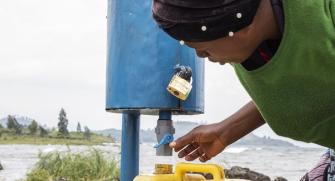A multi-site pilot study of the deployment of cholera rapid diagnostic tests in the Democratic Republic of the Congo
Although extensive work on defining the theoretical basis of potential sampling schemes to estimate incidence has been done by the GTFCC, the practical deployment strategies for RDTs to support incidence measurement in field conditions require further refinement. First, after RDT deployment to the health facilities the respective people must be trained in the use of RDT and interpretation of the result for surveillance. For example, a field-applicable method is required to identify the scaling up of the RDT positivity rate in a sample of suspected cases to incidence estimates for all suspected cases and correcting for sensitivity and specificity. Before a successful integration of RDT into routine surveillance, more research on different strategies and their implementation is necessary for different scenarios. Moreover, the ideal sampling strategy must be adaptable to field conditions, based on the most commonly used RDTs. Furthermore they should be implemented by MoH staff without much supervision and follow-up in cholera outbreak settings with limited resources. Hence, the study will contribute to further refine the use of RDTs for cholera surveillance with a strong focus on the implementation in real world conditions.
Objective
- Assess the performance and feasibility of different cholera RDTs and their implementation into new surveillance strategies under a variety of real-world deployment conditions.
- Derive and compare estimates of the true clinical incidence of cholera based on RDTs using different sampling schemes.
Methods
This study will be an observational, mixed-methods study.
Country
DRC and Niger
Status
Launch of the study
Tentative end Date
2024
Our role
Study Coordination
Partners
MSF, DRC Ministry oh health, GAVI








